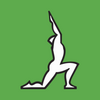What are Acupuncture and Traditional Chinese Medicine?
Acupuncture and Traditional Chinese Medicine (TCM) originated as part of a holistic, preventative medicine system in China approximately 3,000 years ago. TCM sees the body, mind, and spirit as deeply interconnected and therefore affecting each other. While practitioners are looking to address symptoms during treatment, they are also aiming to treat the root cause of the illness.
In China, Western Medicine and TCM are used together in the healthcare system. TCM has stood the test of time and it is widely used throughout the world. With in-depth studies and research that have provided proof of its benefits, it is recognized globally as effective for many issues. Other tools used in TCM include: fire cupping, Gua Sha, moxibustion, herbal medicine, Qi Gong, as well as diet and lifestyle recommendations.
What Conditions are Treated by TCM?
TCM can address a wide range of conditions including:
- Addictions, allergies, anxiety, asthma, arthritis, and back pain
- Chronic Fatigue, constipation, depression, dizziness, digestive issues, emotional regulation, and fibromyalgia
- High blood pressure, headaches, indigestion, cognitive function, and insomnia
- Low energy, musculoskeletal problems, migraines, and palliative care
- Post-operative recovery, PTSD, and sciatica
- Sexual dysfunction, sinusitis, and stress reduction
- Stroke recovery, sports performance improvement, TMJ, and Vagus nerve stimulation
- Pregnancy and postpartum care, fertility and IVF support, menstrual health (irregular cycles, period pain), and menopause
What Does Acupuncture Do in the Body?
Although acupuncture has been extensively researched, more is needed to understand why it has certain effects on the body. It has been proven to modulate the nervous system, stimulating the autonomic nervous system while impacting different parts of the brain and the organs. Acupuncture stimulates nerve fibres, causing the release of various neurotransmitters such as serotonin, dopamine, norepinephrine, and GABA. By modulating these systems, it can help regulate breathing, digestion, and the function of specific organs.
Some patients will see relief depending on the condition with one acupuncture treatment and others may need multiple treatments for the cumulative effects to create long-lasting results.
What is the Difference Between Dry Needling and TCM?
Dry needling uses myofascial trigger points while TCM uses several different theories to strategically choose acupuncture points on the body for treatment.
What Does Acupuncture Feel Like?
Acupuncture needles are very thin. Treatment should not be painful. We want to elicit a response from the body, but it is meant to be a relaxing experience. People often take “acu-naps”, as they become deeply relaxed.
After a treatment you may feel tired or drained, this is normal.
How to Prepare for a Treatment
- Eat something one hour before the treatment. This will reduce the changes of dizziness.
- Wear comfortable and loose clothing, or bring gym shorts if possible.
- You may be laying in one position for 20-30 minutes. If you find this difficult please ask your practitioner for adjustments.
- If you are nervous about needles, talk to your practitioner and they can make sure that you can have an experience that allows you to feel the most at ease.
What Happens During a Treatment Session?
After doing a thorough intake, the TCM practitioner will take your pulse on both wrists and check the tongue. They will then discuss a treatment plan with you to address your individual needs and begin the treatment. The practitioner may begin with physical palpation to see how the body responds to pressure on certain acupuncture points. They will then perform acupuncture or perform fire cupping therapy.
